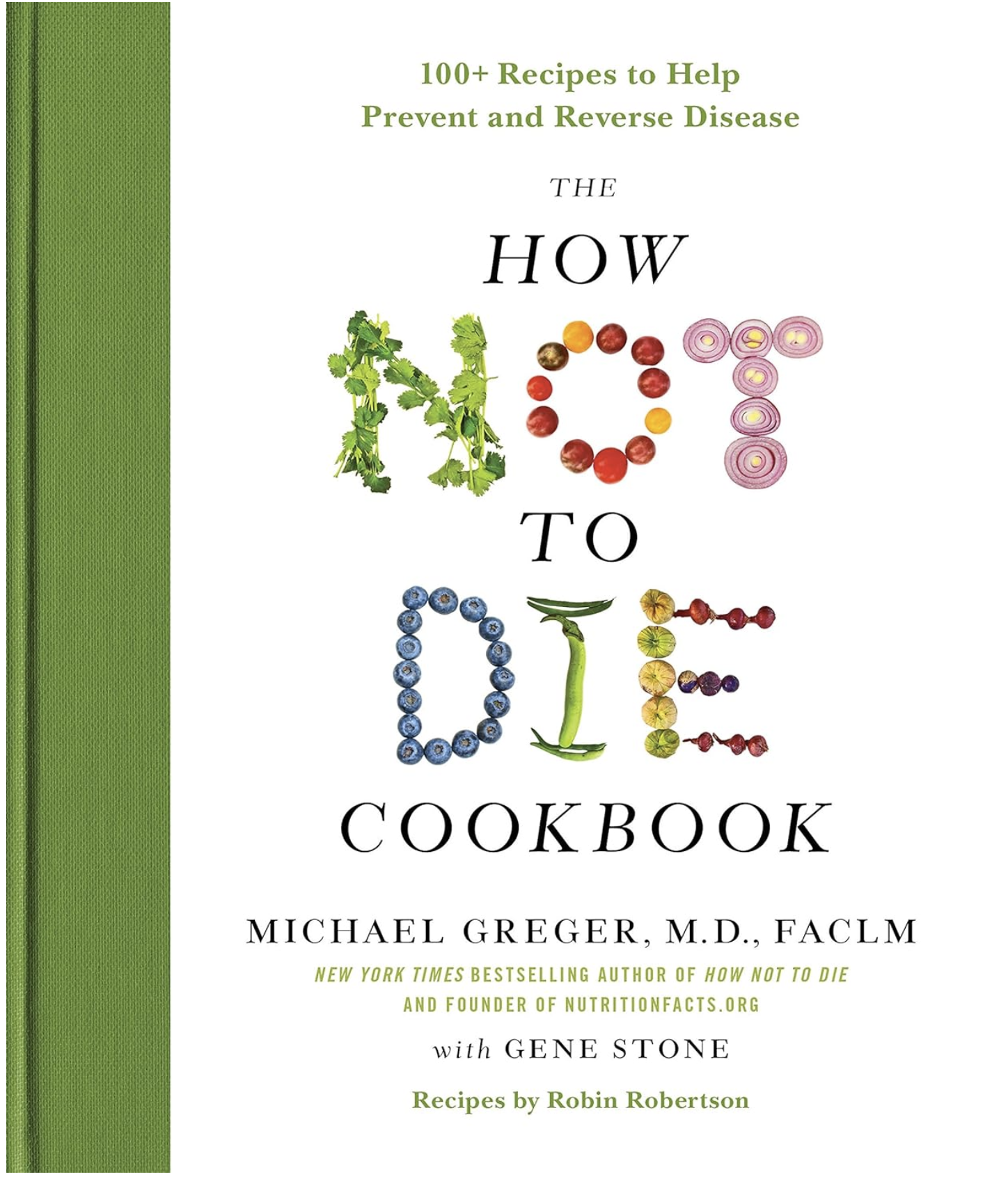Plant-based Living
Plant-based living
My family and I have been committed to doing our part for the environment, our health, and even more so animals by living a fully whole food plant-based lifestyle. I’ve done that for more than 40 years and I encourage others to consider adopting more of a plant-based lifestyle too. I’ve included this page on my website to share the information that my family and I have curated over the years.
Health
The major causes of illness and death are linked to eating meat and dairy including heart disease, stroke, cancer, diabetes, etc. Plant-based whole-foods can prevent and even reverse illnesses caused by eating meat and dairy. In fact, going fully plant-based resolved my high cholesterol problem. If you’re interested in learning more, please watch the movie What the Health.
Environment
The meat and dairy industry causes massive destruction of rain forest, uses huge amounts of water, causes air pollution, and is a major contributor to climate change. Plant-based whole-foods vastly reduce the negative impact on the environment. If you’re interested in learning more, please watch the movie Cowspiracy.
Ethics
We believe that we should live our lives without harming animals in any way by eating plant-based whole-foods instead of meat and dairy and also to not wear clothes made of animals, use products tested on animals, and not exploit animals in any way at all. If you’re interested in learning more, please watch the movie Dominion
Awesome taste!
In addition to ethics, health, and the environment, we’re also living at a time when more and more awesome tasting plant-based food is available. The above pics are of some of our favorites. When we went veg initially decades ago, iceberg lettuce salad was virtually all that was available but there are now amazing fully plant-based restaurants and plant-based options at non-plant-based restaurants. It’s now not unusual for a meat eater to go to a fully plant-based restaurant and be so blown away by the taste that they continue to eat plant-based for the taste and later appreciate the other benefits of going fully plant-based or even vegan. Of course, you don’t have to only get amazing plant-based meals at restaurants, you can also make them at home yourself given the wide range of recipes and cookbooks available.
Plant-based Celebrities
Many of the athletes who are at the very best in their sport are fully plant-based.
Many other celebrities who are the top of their profession in entertainment are fully plant-based too.
Q & A
Where would I get my protein from?
Black beans, tofu, nuts, tempeh, garbanzo beans, broccoli, quinoa, lentils, potatoes, and mushrooms provide a ton of protein. Incidentally, animals get their protein from plants too.
Won't I be missing key nutrients and vitamins?
If you eat well-balanced plant-based whole-foods meals, you'll get all the nutrients you need and you only need to take Vitamin B12.
But how will I live without bacon?
There are products that taste just like bacon.
But how can I give up hamburgers?
You don’t have to. There are plant-based hamburgers now that taste just like the meat version.
Oh, but what about the cheese I so love?
There are plant-based cheeses that taste great and can even melt like the animal versions do.
But what do about drinking milk?
There are great tasting nut-based milks. Incidentally, humans are the only mammals that drink milk after infancy.
But don’t you need meat to be strong and fast?
No you don’t. In fact, many of the strongest and fastest athletes in the world are fully plant-based (vegan).
Will I find plant-based options at restaurants?
Most restaurants have plant-based options or will create them. There are also fully plant-based restaurants.
And, I shouldn’t wear leather belts, shoes, or coats?
You can wear synthetic leather alternatives and they look great.
But, isn’t being plant-based more expensive?
No, plant-based protein is less expensive than meat even though meat is subsidized an incredible amount by governments.
Isn’t it hard being plant-based when traveling?
Members of our family travel all the time and always find plant-based options or fully plant-based restaurants.
Do I have to do this all alone?
Even if you’re the only plant-based person among family and friends, connect with other plant-based people online on Instagram (e.g., accounts like @karelvredenburg, @itdoesnttastelikechicken, @livekindlyco, @plantbasednews, @vegancommunity, @veganfacts and hashtags #plantbased #vegan, #vegans, #veganrecipes, #veganfood, etc.) and Facebook (join groups like New Vegan Support, Everything Vegan, and humorous ones like Vegan Humor, Bad Vegan and local ones for your area like Toronto Vegans, Austin Vegans). You can also go to plant-based events like a local VegFest. There are lots of ways of connecting digitally and in person with other awesome people who are plant-based!
getting started
The most important thing about becoming more plant-based is simply getting started and there are a few different ways of doing that. Most people who are already convinced that they want to go plant-based for ethical reasons and can’t stand to hurt another animal (after watching a movie like Dominion or seeing pictures of the inside of a slaughterhouse) will typically switch completely whereas those initially motivated by health (after watching a movie like What the Health) often ease into eating more plant-based. After getting started, most people appreciate all four reasons for going plant-based: ethics, health, environment, and taste.
There are several ways of approaching the transition to going more plant-based. Here are three simple steps that have worked for many people we know, though Steps 1 and 2 can be reversed.
Introduce yourself to meatless versions of the meat you enjoy today and nut-based versions of milk. Virtually all animal-based meats are now available in plant-based versions from companies like Beyond Meat, Impossible Burger, Yves, and Tofurky and nut-based milks and cheeses are widely available too.
Step 1
Go to an amazing fully plant-based restaurant in your area (or order for delivery) and experience what plant-based whole foods can taste like when prepared by a talented plant-based chef. Most cities now have fully plant-based restaurants ranging from comfort food to high-end haute cuisine. You can easily them by using Happy Cow, available as a website and an app.
step 2
Get one or more of the awesome plant-based cookbooks (see the recipes section), go grocery shopping mostly in the fruit and veg (plus spice) section and have fun making amazing fully plant-based whole foods for yourself as well as your family and friends. This third step is important if you want to glean the maximum health benefits of going plant-based.
Step 3
Don’t forget to take your Vitamin B12 unless you plan to drink water out of dirty streams. Animals used for food no longer do either so they are given B12 supplements. Takes one 1,200 mcg tablet per week or more often if you’re older.
but wait!
recipes
We post all of the great recipes that our family has tried and recommend on a Pinterest board called What Vegans Eat.
Here are our recommended cookbooks:
Sam turnbull
Bestselling author of Fuss-Free Vegan
candice hutchings
Quick, Tasty, Vegan
Dr. Michael Greger
The ultimate guide to healthy plant-based cooking
Our Team
My family is our team. The matriarch of the family, Erin O’Brien, was plant-based decades ago and when she met me, I joined her too. Our four children, Elliot, Emma, Rowan, and Noah grew up plant-based and the whole family went fully plant-based (typically referred to as vegan) at the suggestion of son Rowan during a family vacation in Los Angeles in 2014. Partners and friends also tend to go plant-based. Our family is plant-based for ethical reasons but also appreciates the benefits that it provides to our health, the health of the planet’s environment, and preventing the next pandemic. We are passionate about living a plant-based lifestyle and encourage others to adopt the lifestyle too.
*Please note that I’ve used the term “Plant-Based” instead of “Vegan” to not scare you away before you had a chance to check out the information on this page. The word has received a bad rap especially lately so I avoid it. The two terms aren’t synonymous however with the former typically being used to describe a diet whereas the latter is an all-encompassing life-style of not inflicting harm to animals.





































